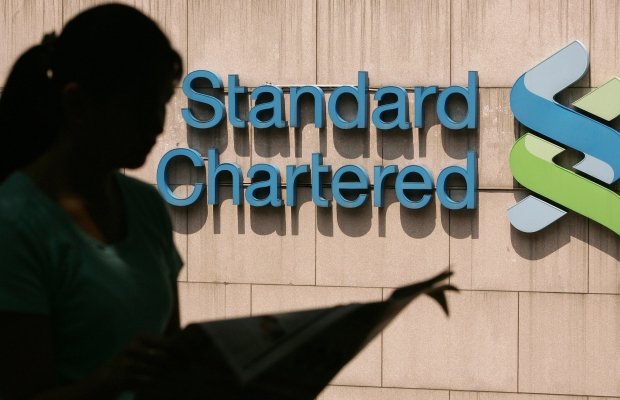Standard Chartered hikes profits despite US-China trade war impact

Standard Chartered boosted profits in the first six months of 2019, but warned of the impact of the US-China trade war on global market sentiment.
Read more: MPs turn up the heat on Standard Chartered boss in pension pay row
The figures
Underlying profit before tax increased 11 per cent year on year to $2.6bn (£2.14bn) for the six months to the end of June. Statutory profit before tax climbed three per cent to $2.4bn.
Underlying revenue rose 0.6 per cent year on year while underlying costs fell 2.9 per cent.
Return on tangible equity rose 88 basis points to 8.4 per cent, staying on target to hit over 10 per cent by 2021.
Earnings per share rose nine per cent to $0.491 while the bank raised its interim dividend 17 per cent higher than last year’s to $0.07 per share.
Why it’s interesting
The bank got a boost from a $1bn stock buyback it announced in April, and said it has now completed around $740m of it.
It also settled a US-UK probe into Iran transactions at a cost of $1.1bn to the bank.
However, the bank warned that “trade tensions are affecting sentiment”.
“Trade protectionism is bad for the global economy, and fears concerning this matter continue to affect sentiment across global markets and on the ground in many of our locations,” the bank added.
“However, we stand to benefit over time as China continues to open and places more emphasis on trade corridors radiating through Asia and connecting it with our markets in Africa and the Middle East.”
It also pointed to an easing of the monetary policy cycle as possible risks at the Asia-focused bank.
Hong Kong, for instance, cut its base rate for the first time since 2008 today after the US Federal Reserve yesterday made an interest rate cut.
Boss Bill Winters is also embroiled in a pension pay row after the bank upped his pension contributions to £474,000 a year.
Read more: Donald Trump lashes out at Fed rates cut
What Standard Chartered said
Chief executive Bill Winters said:
“We made good progress both financially and on our strategic priorities in the first half, growing income four per cent and improving profits 13 per cent, at constant currency.
“We have positioned ourselves to develop and scale innovative new business models, as we support and grow with our clients. We are investing now to create optionality for the future, and I am excited by the opportunities we are already generating.”